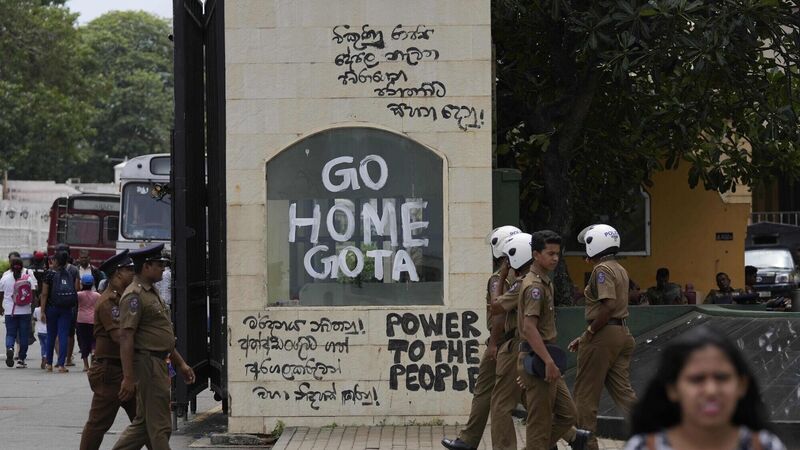Irish Examiner view: Sri Lanka's collapse could be a foretaste of further chaos

Graffiti outside Gotabaya Rajapaksa's residence has a clear message for the ousted Sri Lankan president. Less clear is where the global economic and political crises will lead. Picture: Eranga Jayawardena/AP
As an example of what happens when states fail, it is impossible not to look beyond the example of Sri Lanka where its president, Gotabaya Rajapaksa — the last man standing in his family’s dynastic control of a country which gained its independence in 1948 — has resigned after his residence and offices were stormed by protestors and the home of his prime minister was set ablaze.
The country has been engulfed by an economic crisis which has produced a desperate food and fuel shortage, tens of thousands have taken to the streets of Colombo, and the country of 22m people is bankrupt.
















